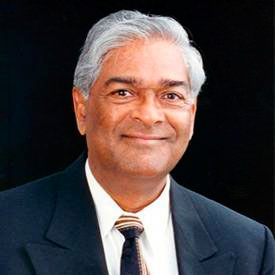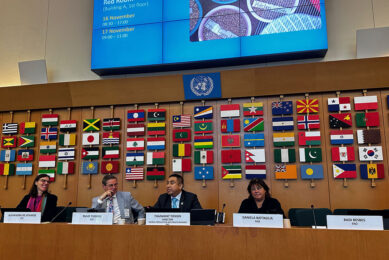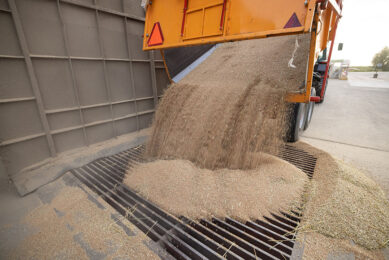2014 World Food Prize honours plant scientist

India-born plant scientist Dr Sanjaya Rajaram has been named the winner of the US$250,000 World Food Prize for his contribution in increasing global wheat production.
Dr Rajaram (born in India and a citizen of Mexico) worked hand-in-hand with Nobel Laureate Dr Norman Borlaug and bred an impressive 480 varieties of wheat to provide nutritious grains resistant to rust disease and adaptable in a vast array of climates. They have been released in 51 countries on six continents and have been widely adopted by small- and large-scale farmers alike.
In announcing the name of the 2014 Laureate, Ambassador Kenneth M Quinn, President of the World Food Prize, noted how highly appropriate it is to honour Dr Rajaram during the Borlaug Centennial Year.
“Dr Rajaram worked closely with Dr Borlaug, succeeding him as head of the wheat breeding program at CIMMYT in Mexico, and then carried forward and expanded upon his work, breaking new ground with his own invaluable achievements. His breakthrough breeding technologies have had a far-reaching and significant impact in providing more food around the globe and alleviating world hunger,” Quinn said. “Dr. Borlaug himself called Dr. Rajaram ‘the greatest present-day wheat scientist in the world’ and ‘a scientist of great vision.’ It is an honour to recognise Dr. Rajaram today for his development of an astounding 480 varieties of wheat, bred to offer higher yields, resistance to the catastrophic rust disease, and that thrive in a wide array of climates.”
Born in a small village in India, Dr Rajaram worked to be the top in his class as he moved through school, and dedicated his life to making direct improvements for farmers and all people who depend on agriculture. Now a citizen of Mexico, Dr Rajaram conducted the majority of his research in Mexico at the International Maize and Wheat Improvement Center (CIMMYT). His work there led to a prodigious increase in world wheat production – by more than 200 million tons during the 25-year-period known as the “golden years of wheat” – building upon the successes of the Green Revolution.
Dr Rajaram succeeded Dr Norman Borlaug in leading CIMMYT’s wheat breeding program, and developed an astounding 480 wheat varieties that have been released in 51 countries on six continents and have been widely adopted by small- and large-scale farmers alike. His crossing of winter and spring wheat varieties, which were distinct gene pools that had been isolated from one another for hundreds of years, led to his development of plants that have higher yields and dependability under a wide range of environments around the world.
As the World Food Prize celebrates the centennial year of his mentor, Dr Norman Borlaug, as well as the UN-FAO’s International Year of Family Farming, it is especially fitting that we recognise the impact of Dr Rajaram’s achievements.
Quinn also noted the importance of carrying forward the great work of leaders such as Dr Borlaug and Dr Rajaram as we endeavour to feed our growing population.
“100 years ago when Norm was born, the world population was 1.8 billion; today it is more than 7 billion and by 2050 it’s expected to exceed 9 billion. The greatest challenge in human history is whether we will be able to sustainably feed everyone on our planet. To that end, we will gather some of the greatest minds in science and agriculture in Des Moines October 15-17 at our Borlaug Dialogue symposium to explore that question,” Quinn said. “We are especially honoured that His Excellency Ernest Bai Koroma, President of the Republic of Sierra Leone, will deliver the keynote address at the conference. We invite all those with an interest in food security to join us in the effort to identify critical innovative solutions.”
Quote from Dr Rajaram:
“I felt highly honoured to receive the news that the 2014 World Food Prize would be awarded to me, and through me, to hundreds and thousands of wheat researchers and farmers around the world. I believe that the challenges of 21st-century agriculture and food production are surmountable compared to the past and can be overcome provided we can bring together new knowledge and delivery systems to farmers in a very sustainable manner. Future crop production is bound to decline unless we fully factor in the issues related to climate change, soil fertility and water deficits, and utilize advanced genetics in the next 20 to 30 years. It will require all the resources from international research centers, national governments, foundations, NGOs and farmer groups together to synergize future agricultural technologies and food production.”
Note:
The World Food Prize was created in 1987 by Nobel Peace Prize winner Dr Norman Borlaug, and is the foremost international award recognising individuals whose achievements have advanced human development by increasing the quality, quantity or availability of food in the world. This year marks the 28th anniversary of the prize
Join 26,000+ subscribers
Subscribe to our newsletter to stay updated about all the need-to-know content in the feed sector, three times a week. Beheer
Beheer









 WP Admin
WP Admin  Bewerk bericht
Bewerk bericht